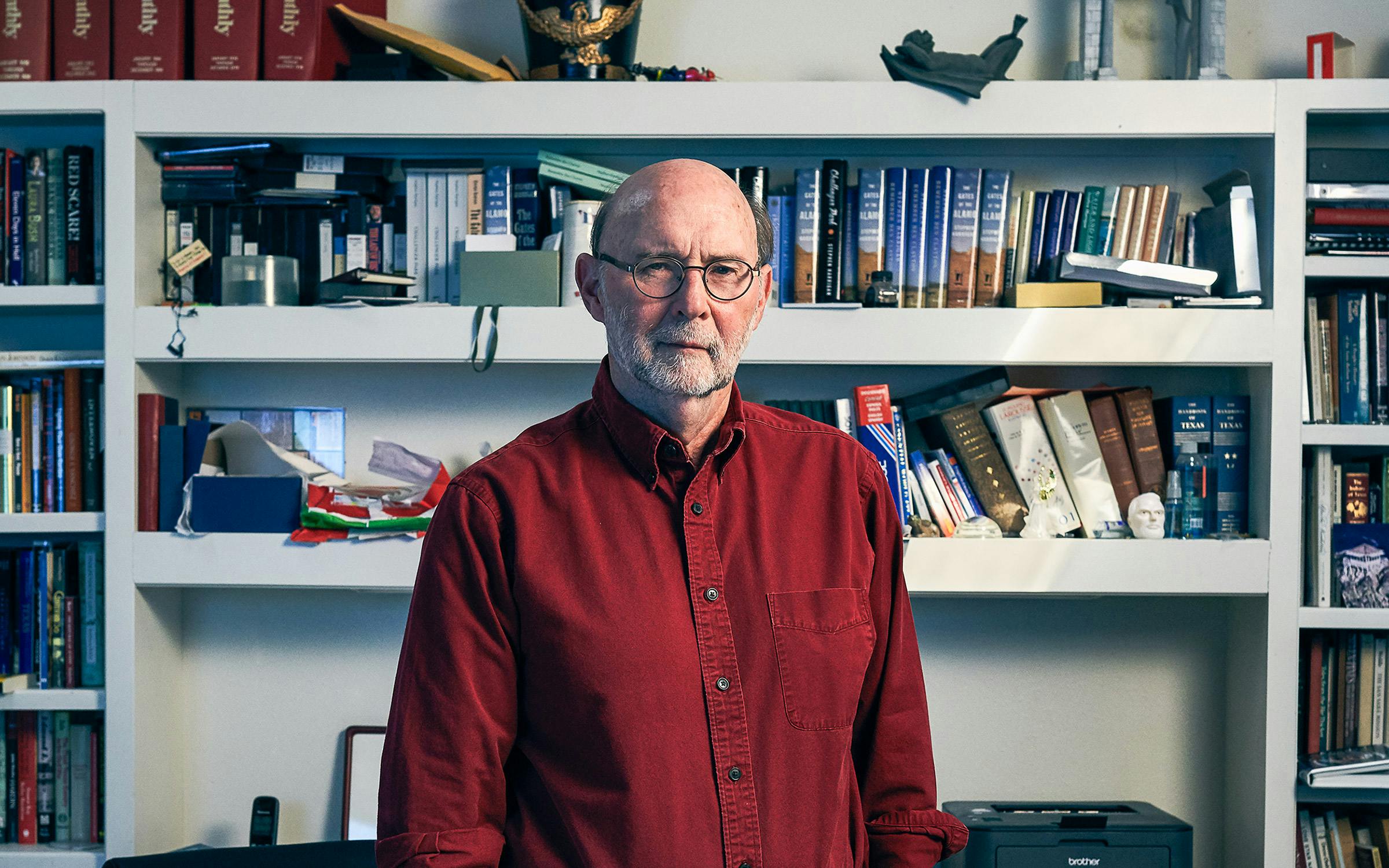When he’s asked about Texas history, Steve Harrigan often starts his reply with a caveat: “I’m not a professional historian.” Nonetheless, he’s one of the most astute researchers, thinkers, and writers about our state’s eventful past. His 2019 book, Big Wonderful Thing, was widely praised as his generation’s most thoughtful and engaging chronicle of the Lone Star State. I refer to it often and always enjoy Steve’s surfacing of fascinating and previously overlooked figures, including women and Texans of color. I also appreciate his adoption of what one of my favorite history professors called “moral humility”—the discipline of studying the attitudes and standards of the time about which you’re writing, rather than assuming that we today are somehow of superior conscience. Without in any way excusing human bondage or genocide, Steve muses, “If I had been here when slavery was widespread or when Europeans were displacing Native peoples, I imagine my views would be like those of the people around me.”
Steve began writing for Texas Monthly during its first decade, in the 1970s, at a time when it paid him so little that he had to mow grass—including the lawn of Bill Broyles, our founding editor in chief—to make ends meet. I’m glad Steve stuck with TM, as he has elevated the magazine’s storytelling ever since. Though he left the staff in 1991, our readers and I are delighted that Steve has continued to contribute as a freelancer. In that role, he has written engaging essays about everything from his pandemic hobby of sculpting clay figures to the way that events at the Dallas Zoo last year related to the plot of his novel The Leopard Is Loose. Steve has written insightful analyses of the removal of statues of controversial figures from public spaces, and of the renovations underway at the Alamo—the setting of one of his award-winning historical novels, The Gates of the Alamo.
He has also gathered in-depth reporting for cover stories such as the one that begins on page 68 of this issue, on the reemergence of members of the Karankawa people, who once ruled large swaths of the Gulf Coast, including what became Steve’s hometown of Corpus Christi. One of the city’s streets bore the tribe’s name, as did a Boy Scout camp that he attended. He recalls as a schoolchild learning three facts about the tribe’s members: “They were cannibals. They were giants. And they were extinct.” All turned out to be myths. As he interviewed Texans with Karankawa heritage for this issue’s story, Steve says, “it was moving to have lunch with people I thought I’d never get to talk with.” He explored how “their lives as a people had come full circle, as they had begun discovering their history and connecting with one another. Social media and genealogy websites have been desperately important to that effort.”
The author of twelve books of fiction and nonfiction, Steve has also crafted scripts for about a dozen TV movies. Every time we meet, he has a few new and wildly divergent projects underway. He’s working on a collection of essays, called An Anchor in the Sea of Time, to be published in late summer of next year; a movie he cowrote and is coproducing with acclaimed Texan author Elizabeth Crook, based on her 2018 novel, The Which Way Tree; and a book exploring the mystery surrounding the three shepherd children in Fátima, Portugal, who reported in 1917 that they were visited by the Virgin Mary and entrusted with three apocalyptic prophecies. Entitled Sorrowful Mysteries, it will be published in April. Steve describes it, with a deadpan expression, as “a bit of a change of pace.” That’s another of Steve’s traits that we treasure: he’s always up for a new kind of assignment.
I hope you enjoy his cover story on the Karankawa and the rest of this issue of Texas Monthly. Please tell me what you think, and what you want Steve to cover next, at the email address here.
This article originally appeared in the September 2024 issue of Texas Monthly with the headline “Stephen Harrigan’s Many Talents.” Subscribe today.
When you buy a book using a link on this page, a portion of your purchase goes to independent bookstores and Texas Monthly receives a commission. Thank you for supporting our journalism.

